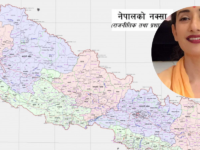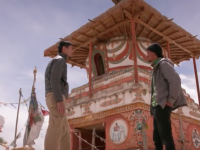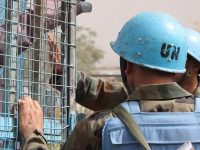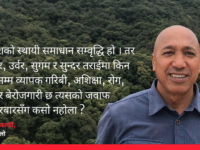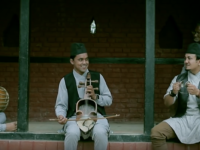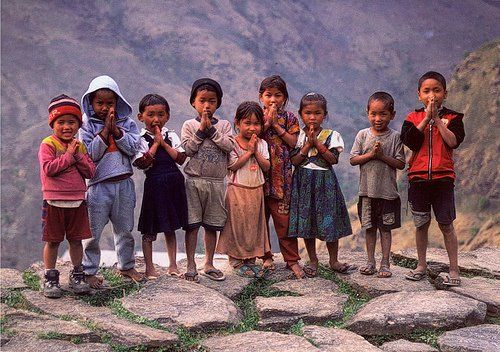We can’t help everyone, but everyone can help someone— Ronald Reagan
Written by Sahaja Pandey.
Yesterday I had the honor of talking to one of the most inspirational people I’ve ever met; someone who truly embodies the idea that “everyone can help someone”. His name is Tilbahadur Karki, and after a rough start to life he has devoted himself to helping children in need.
All kids have an innocent twinkle in their eye and an “I’m happy to be here” smile, but this little boy, born in a rural village, had something extra that other kids didn’t have. He had a sixth finger on each of his hands and he had clubbed feet. From the moment he was born he was different and the other villagers took no time in pointing that out.
Kids his age would pick on him, while his mom was tortured by people in the village for giving birth to a “demon”. Whether it was cruelty, ignorance, or a mixture of both, Tilbhadur grew up knowing he was looked down upon and unwanted. He resented himself for causing so much pain for his mom, whose dreams of a happy, “normal” family were crushed by her own son. What made him unique is what made her life a living hell, and Tilbhadur could see the toll it was taking on her.
So, at the age of eight he decided to put an end to his mom’s heart ache and misery. He attempted to poison himself seven times trying to the get rid of the one thing that made his mom’s life so difficult: him. With each attempt he was left disappointed- still breathing. Unable to end his own life, this nine year old decided he would do the next best thing and remove himself from his mom’s life.
Knowing that once he left he could never return, he left his village with nothing but the pants and t-shirt on his body. He told his mom he wanted her to mourn as if he was dead and left. He flagged down a bus passing through the village, and realizing he had no money, he road on the roof of the bus all the way to the capital city, Kathmandu.
His mom want through the religious ceremony for those who have passed away, and that ceremony ended a torturous chapter of her life, but in that chapter she had to leave her only child behind.
Nine year old Tilbahadur found himself begging at one of the largest Buddhist temples in Kathmandu and eventually moved to Pashupati, one of the most famous temples in Nepal. He sat next to the temple and survived on the kind donations made by people feeling generous enough to spare a few rupees. Leaving behind his tortured past he faced a new problem; he wasn’t big and he couldn’t defend himself. This made him an easy target for other kids begging alongside him who would steal his daily earnings.
He left his village trying to find a better life for himself, and that money is how he could make that better life become a reality. If the other kids kept taking his money he would be begging at Pashupati for the rest of his life. So his solution: bury his money next to a tree.
So, for years he begged for scraps during the day and buried his money at night. Two decades later he decided it was time to dig up everything he’d hidden and try to make a life for himself beyond begging. Now, we all know money doesn’t grow on trees, but this might make you think twice about what could be hiding along side the roots of a tree. Tilbahadur uncovered 500,000 rupees (5,000 USD).
With this money, some people would forget about their past and create a blissful future. But Tilbahadur is not some people. He couldn’t stop thinking of the struggles he faced and the sacrifices he made, and he didn’t want other kids to have to do the same. So rather than creating an amazing future for just himself, he found purpose creating futures for others. He started an orphanage catering to kids just like him; those who have had a rough start to life.
As he got older he realized that after all these years he still missed his mom and decided to go visit her and his old village, something he never intended to do after leaving. His mom, who had more white hair and wrinkles than he remembered, embraced him with open arms and an open heart. She performed a “rebirth” ceremony in which a clay pot is broken and it is believed that the person has been reborn out of the pot. She redid all the poojas that are done for young children; from the naming of a child at eleven days old to the rice feeding ceremony at six months old. With these formalities out of the way, the mother son relationship, once ripped apart, was on its way to what it once was.
For a child that left home never intending to go back, Tilbahadur’s life pieced itself together. His orphanage now serves forty kids- forty kids that would not have had a chance to go to school, sleep with a roof over their heads, or eat a decent meal. The sanctuary he has created for these kids is set at the foot of breathtaking mountains. The children each have their own beds in clean rooms and get three full meals a day. They run to school with smiles on their faces, happily embracing the second chance that Tilbahadur has given them.
I have never been so inspired by a singel person before. It really makes you question the impact one person can have . If someone who was born into such tortured circumstances is able to help so many people, imagine what people from more fortunate families could do.
Tilbahadur told me the one thing he wishes people could learn from his story is that helping just a few people is better than sitting by and watching people suffer. You might not be able to help everyone but that’s not an excuse to not help anyone.
Whether it’s opening the door for someone, letting an elderly person have your seat in the bus, buying a meal for someone who can’t, or sponsoring a child who doesn’t have the opportunity of an education, helping people while on the climb of life makes the view from the top of the mountain that much more amazing.
Sahaja Pandey is a 19 year old born in Cincinnati Ohio to Nepali parents dedicated to teaching her and her sister about Nepal’s rich culture and history. She studied classical Indian dance (Bharatnatyam and Kuchipudi) for ten years, and from a young, age she used dance as a way to raise money for organizations that help underprivileged children get an education and work to prevent human trafficking. As a child, she spent several summers in Nepal, and this only solidified her desire to better understand it’s impoverished youth. Full of aspiration, she is spending three months this summer teacher math and dance and a government school.




